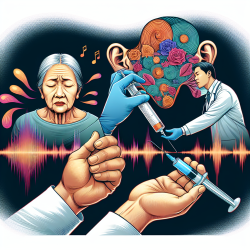Understanding the Role of BDNF in mTBI Recovery
In the realm of speech-language pathology, especially when dealing with children who have experienced mild traumatic brain injury (mTBI), it is crucial to base therapeutic decisions on solid scientific data. A recent study titled Post-concussion symptoms and chronic pain after mild traumatic brain injury are modulated by multiple locus effect in the BDNF gene through the expression of antisense: A pilot prospective control study sheds light on the genetic factors influencing recovery from mTBI. This research emphasizes the importance of the brain-derived neurotrophic factor (BDNF) gene and its antisense RNA (BDNF-AS) in modulating post-concussion symptoms and chronic pain.
The Study's Key Findings
The study involved 94 mTBI patients and 22 healthy controls, with assessments conducted in both acute and chronic phases. The results revealed that two haplotypes within the BDNF gene, H2 and H3, play significant roles in post-concussion outcomes. Haplotype H2 was found to be deleterious, increasing the risk of chronic pain and post-concussion symptoms, while H3 was protective, associated with reduced expression of BDNF-AS and a decreased likelihood of chronic pain.
Implications for Practitioners
For practitioners, these findings highlight the potential of genetic screening in predicting and managing mTBI outcomes. By identifying patients with the deleterious H2 haplotype, interventions can be tailored to mitigate risks, while those with the protective H3 haplotype may require different strategies to optimize recovery. This genetic insight provides a pathway to personalized therapy, enhancing the efficacy of interventions for children with mTBI.
Encouraging Further Research
While the study offers promising insights, it also underscores the need for further research. Larger cohort studies are essential to validate these findings and explore the mechanisms by which BDNF-AS influences mTBI outcomes. Such research could lead to the development of targeted therapies that manipulate BDNF-AS expression, potentially revolutionizing treatment approaches for mTBI.
Conclusion
Understanding the genetic underpinnings of mTBI recovery can significantly impact therapeutic strategies in speech-language pathology. By integrating genetic insights into practice, we can move towards more data-driven, personalized care, ultimately improving outcomes for children affected by mTBI. For those interested in delving deeper into this research, the original study can be accessed here.










